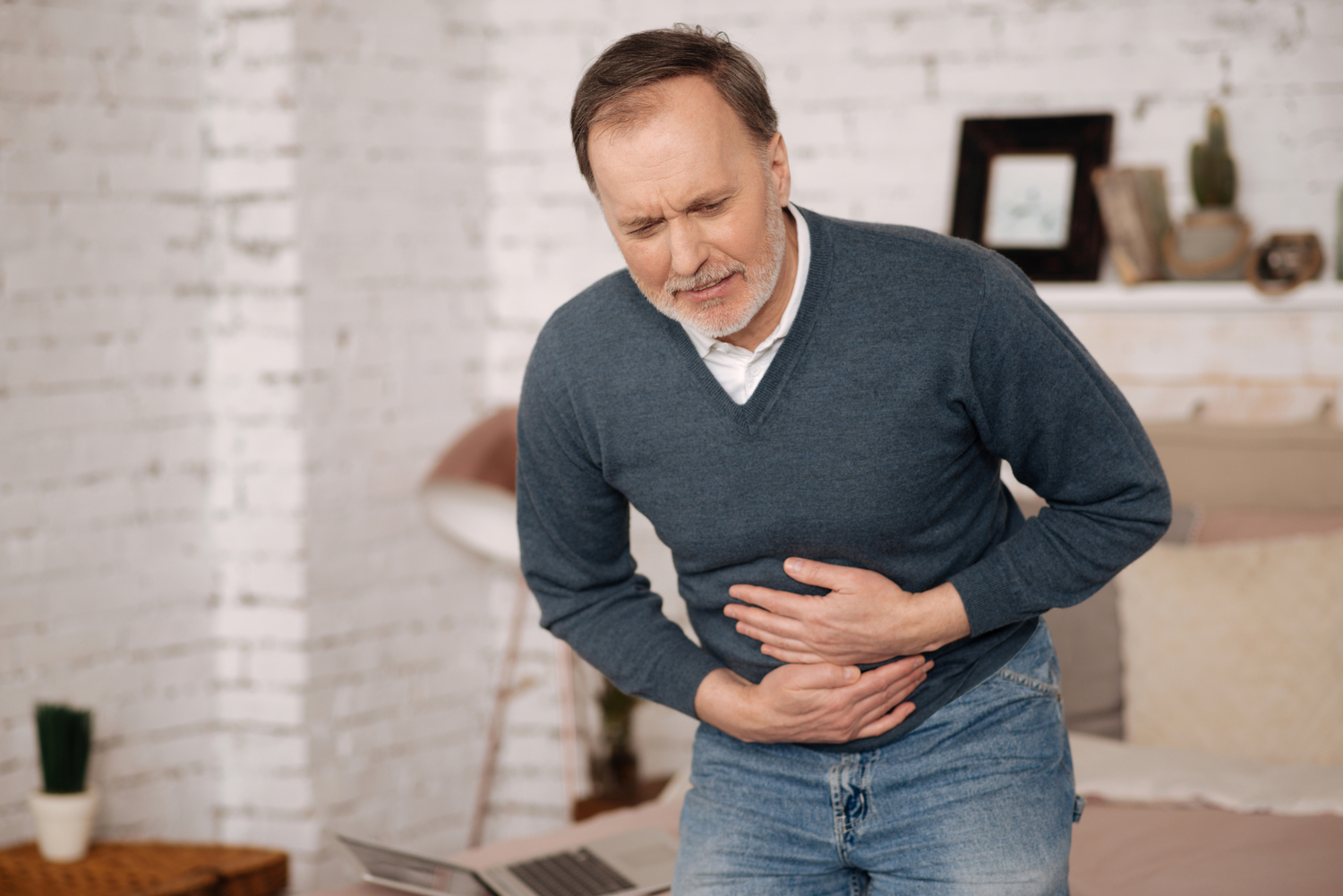7 Common Symptoms of Stomach Cancer
Stomach cancer (or gastric cancer) develops when cancerous cells grow along the lining of the stomach. According to the American Cancer Society, new cases of this condition are declining by 1.5% each year in the country; however, it is the second most common kind of cancer in the world. The condition is usually observed in men and those over the age of 60. Since it progresses gradually, symptoms are initially restricted to the stomach.

Indigestion
Among the early signs of stomach cancer, indigestion is a type of discomfort that can be felt in the upper or lower abdomen. It usually occurs before or after a meal or when having a drink, and can also be brought on merely by the smell of food. Cancer can cause a blockage in the stomach that prevents the smooth passage of food, leading to indigestion. The discomfort can be mild or severe, rare or frequent, depending on the size and location of the tumor.
Abdominal pain
Pain above the navel can be observed as an early sign of stomach cancer. Further, people can feel gassy after meals. One may also experience swelling in their stomach as the disease can cause fluid buildup in the abdominal region.
Heartburn or acid reflux
Heartburn is a burning sensation in the chest and is a common gastroesophageal reflux disease (GERD) symptom. It develops when one’s lower esophageal sphincter weakens, which results in stomach acids flowing back into the esophagus, causing irritation. Stomach cancer can cause GERD as the tumor may exert pressure on the sphincter, leading to frequent acid reflux.
Nausea and vomiting
Nausea can be brought on by an infection, food poisoning, or a stomach bug. However, if one experiences persistent nausea and vomiting, with or without blood, it may be an early sign of stomach cancer. All these concerns should be communicated to the doctor.
Difficulty in swallowing
Experiencing difficulty in swallowing food, saliva, or any other liquid is a common stomach cancer symptom. Some people may have trouble eating solid food and may just be able to have fluids. Some patients also struggle with swallowing pills or chewing their food.
Bloating and feeling full
People affected by the disease can feel bloated and full even after small meals. One can experience this feeling of fullness in the upper abdomen, right below the chest bone. Constant bloating is a common stomach cancer symptom that should be communicated to the general physician.
Loss of appetite
The disease interferes with the intake of food as certain hormones produced in this condition affect the way the body recognizes that it needs more food. Further, the overall abdominal discomfort, pain, swallowing issues, heartburn, and indigestion can contribute to the poor appetite. This naturally leads to people eating less than they need to, lowering their energy levels. Persistent loss of appetite should be communicated to the doctor.
Diarrhea, constipation, blood in stool, weakness, and yellowing of the eyes are other typical symptoms associated with the condition. The early signs of stomach cancer are difficult to detect as the condition progresses gradually in the affected organ before spreading to the other parts of the body. Further, the common symptoms can indicate not just cancer, but also gastrointestinal issues or ulcers, making it easy to dismiss them as false alarms.
Diagnosis and treatment
To confirm that the symptoms are brought on by cancer, doctors might begin with a physical exam. They may then ask the patient to undergo blood tests, CT scan, ultrasound, or conduct an upper endoscopy to verify the presence of cancer. Once diagnosed, depending on the disease stage, doctors might recommend common stomach cancer treatment options like chemotherapy and even surgery.
Preventive measures
Maintaining a balanced nutritional regimen and adopting a healthier lifestyle can help prevent stomach cancer. Some of the popular measures include:
Adding a variety of fruits and vegetables to the meals
Choosing whole grains over refined grains
Decreasing intake of processed foods
Limiting red meat from meals
Reducing sugar intake
Limiting salt consumption by using low-sodium seasoning instead of table salt
Exercising regularly to ensure that fat does not buildup around organs like the stomach
Risk factors
Stomach cancers are common among older adults, men, people with poor lifestyles, and those with a family history of the disease. People who have undergone chemotherapy for other types of cancer or have been previously affected by an autoimmune disease like Crohn’s disease or ulcerative colitis are also more likely to develop this condition. Further, eating a lot of salty food, not storing and refrigerating food properly, and not incorporating fruits into the meals can increase the risks.
The disease accounts for just 5.7% of all cancers, making it a lesser-known threat. However, it is important to recognize the warning signs and seek timely treatment to avoid overlooking stomach cancer symptoms as minor gastrointestinal issues.